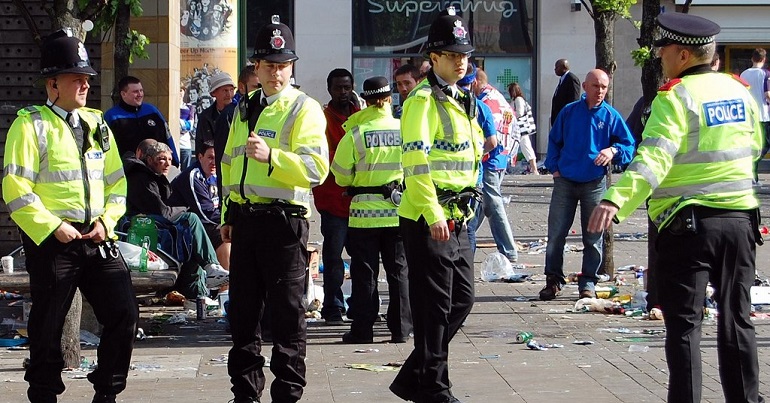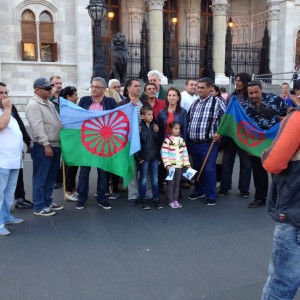Protest is not a crime
Three environmental activists are due to stand trial in Edinburgh this month, charged with ‘Breach of the Peace’ after taking part in a protest at a branch of the Royal Bank of Scotland.
In an effort to engage customers in conversation about RBS’ role in financing the Canadian Tar Sands – the most destructive fossil fuels project in the world – the three super-glued themselves to the bank in order to speak to customers as they passed in and out.
Meanwhile a band of performers sang a song about RBS’ role in Tar Sands, complete with dance routine and costumes.
As one participant recorded on Bright Green at the time:
“The responses were varied. Some people were supportive for environmental reasons, some were angry at RBS because of their role in the financial crisis, some joked about this being like a Fringe performance or a variation on the Dashing White Sergeant. Others simply wanted to use the bank. Our tone was always polite and friendly.”
In Scotland, Breach of the Peace has been used to cover a wide range of actions that are not explicitly prohibited in law, often used questionably to arrest protesters. However, more recent cases in the context of human rights legislation have clarified that low key protest does not constitute a breach of the peace, even if it is inconvenient for the target.
The actions of the ‘Superglue 3’ were certainly inconvenient for a bank that would rather that people did not raise awareness of the devastating impacts of their decisions. It was also unconventional – reflecting a way of engaging people in a more creative manner than waving placards, handing out leaflets or straight forward blockading. However, it was not illegal.
As shown by videos, the action was good natured – even jovial. Protest constantly reinvents itself and changes in its form. Even if the method is unconventional – protest is a democratic right, not a crime, providing that it would cause no reasonable person to be alarmed or distressed.
Hopefully, when the activists stand trial later this month, the sheriff will stand up for justice and the legal rights to free speech, by recognising that polite engagement with the public is no crime.
However, if the Sherriff declares the three to be guilty, it will be a damning indictment on the Royal Bank of Scotland. In the event that the three are found to have alarmed or distressed customers by politely informing them of RBS’ financing of Tar Sands, the Scottish courts will have officially recognised the alarming and distressing character of RBS’ actions.
We, the tax payers, own 84% of the Royal Bank of Scotland. Yet when citizen shareholders try to speak about the Bank’s crimes they are hauled in front of a court.
As the pressure builds though, and RBS’ role in the financial crisis and banker’s bonuses increasingly attracts public ire, we hope that the time is approaching when the Royal Bank of Scotland will find itself in the dock, rather than those willing to speak out against them.
To find out more about the action, including a video, photos and the song, visit www.superglue3.org . The email address for solidarity statements is thesuperglue3@gmail.com . For updates, follow @thesuperglue3 on Twitter .




Those following this case and curious about the underlying law may be interested in this judgment of the Scottish High Court of Justiciary from 2004. It deals with five separate breach of the peace appeals, which respectively argued that the variously impugned courses of conduct didn’t fall within the legal definition of breach of the peace, set out in Smith v. Donnelly.
http://www.scotcourts.gov.uk/opinions/XJ264.html
Actually it is the right video filmed inside ; it’s on the superglue 3’s own website, superglue3.org Doh
I wasn’t there but get the impression You’ve used the wrong video: I think there’s a better one filmed outside the gates of RBS.
P.S. Red Pepper Magazine have been asking questions following Mark “Stone” Kennedy giving press interviews about the role of the private sector.
I know one branch of the police that used to work against the Triads and then became head of security on campus…